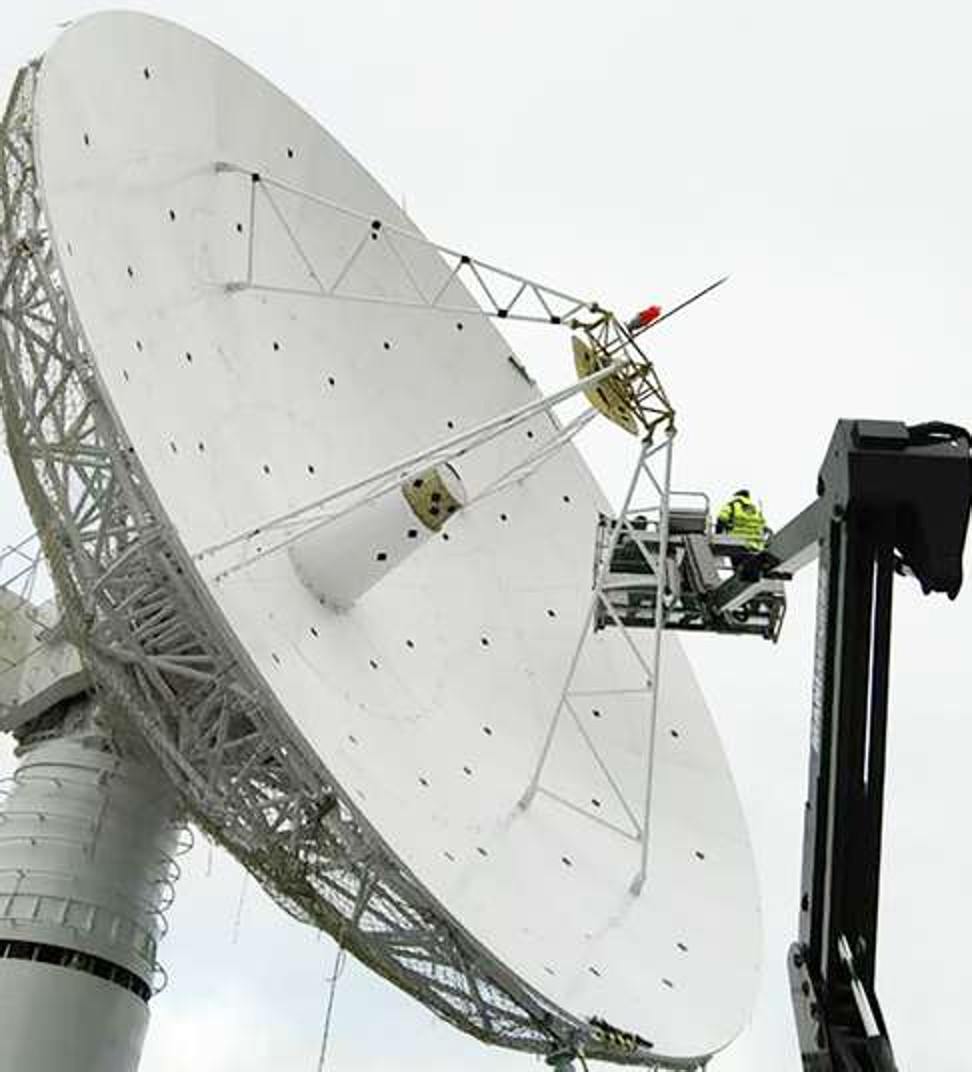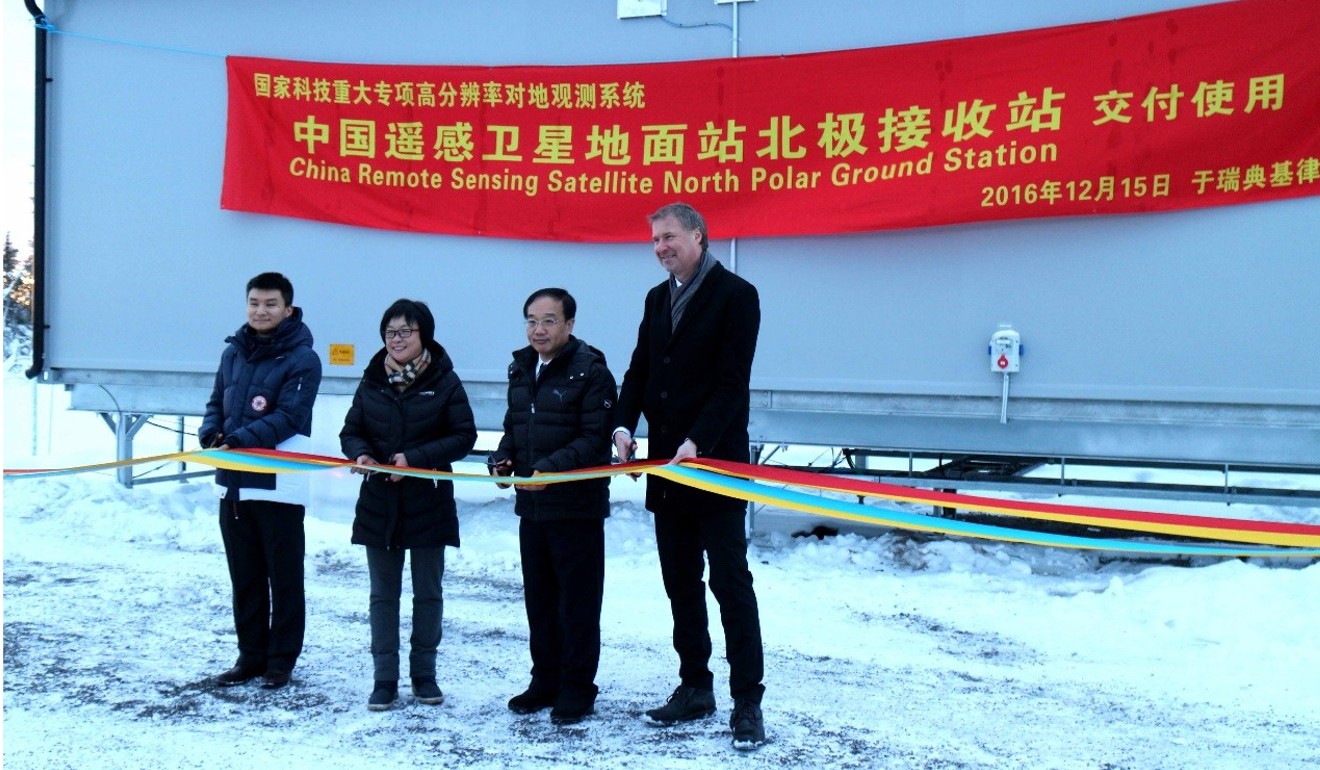
Chinese embassy in Sweden hits out at ‘totally irresponsible’ security threat claims
- Remarks follow Swedish media reports that agreements were signed with Chinese military on controversial satellite station in the country’s north
- Embassy also calls accusations about China’s ‘control’ over telecoms networks and infrastructure ‘unjustified’
The Chinese embassy in Stockholm has lashed out at the latest “China threat” accusations, as Sweden steps up scrutiny of technology ties with the country.
Its statement on Friday followed Swedish media reports that agreements to establish a controversial satellite station in the country’s north had been signed with the Chinese military.
The embassy rejected claims by Swedish politicians and media that China posed “security threats”.
“Such claims, without any factual support, are deliberately hyped up fabrications. They are totally irresponsible,” the statement said.
The embassy also said accusations about China’s “control” over telecommunications networks and infrastructure were “unjustified”.
Like other countries, Sweden is assessing the security-related risks in its relations with China. Its government has joined other European nations, including neighbour Norway, in reviewing whether Huawei Technologies should be excluded from its future 5G networks, Swedish newspaper Dagens Industri reported on January 9.

But mainland media quoted a Chinese analyst as saying concerns over the Kiruna station were part of the anti-China sentiment stirred up by pressure targeting Chinese telecoms giant Huawei, and “fear” of China in the West.
“These incidents are troublemaking related to the ‘China threat’ theory. As the world’s largest manufacturer of telecommunications equipment, Huawei has advanced technology, and Western countries now have fears about China’s development,” Yang Mian, an international relations professor at the Communication University of China in Beijing, told news website Guancha.cn.
China renews warning against travelling to Sweden amid ongoing diplomatic row
More allegations about the Kiruna satellite facility came on Friday when Swedish public news outlets said Swedish Space Corporation (SSC) had signed an agreement on the station with a senior Chinese military officer in 2008.
Swedish media said then SSC chairman Olof Rydh signed the agreement with Lieutenant General Zhang Jianqi, who was in charge of China’s satellite launch programme.
Zhang, who was deputy director of the PLA General Army Armaments Department from 2004 until he retired in 2009, was a key figure in China’s space programme at the time.
That came after the Swedish Defence Research Agency (FOI), under the Ministry of Defence, on Sunday told broadcaster SVT that the nominally civilian cooperation with China could ultimately be controlled by the military.
FOI researchers alleged that China could be using the station – which relays images of the artic regions – to complement military intelligence or provide additional military satellite surveillance should Chinese military satellites be disabled in a time of war.

Officially known as the China Remote Sensing Satellite North Polar Ground Station, the Kiruna facility took two years to build and is China’s “first overseas land satellite receiving station”, according to Chinese government websites.
Kiruna, Sweden: the mining town that is moving east at a cost of more than US$1 billion
The Chinese embassy’s remarks are the latest denouncing critical views of China in Sweden in recent months. They come as Swedish media outlets put more focus on the country’s relationship with China. Newspaper Svenska Dagbladet, for example, covered the Kiruna case this week as part of a series titled “China’s march in Sweden”. Last week, it revealed that advanced Swedish semiconductor firms had been sold to Chinese buyers – and the acquisitions included dual-use technology with possible military applications.
Viking Bohman, an analyst at the Swedish Institute of International Affairs, said the embassy statement was a bid to counter the coverage.
“Overall, the embassy and the ambassador seem unhappy about where the debate in Sweden is going around these and other issues such as [Chinese-born Swedish bookseller] Gui Minhai and human rights in China more broadly,” Bohman said. “They seem to be using the same old style of trying to ‘correct’ the debate through statements.”

